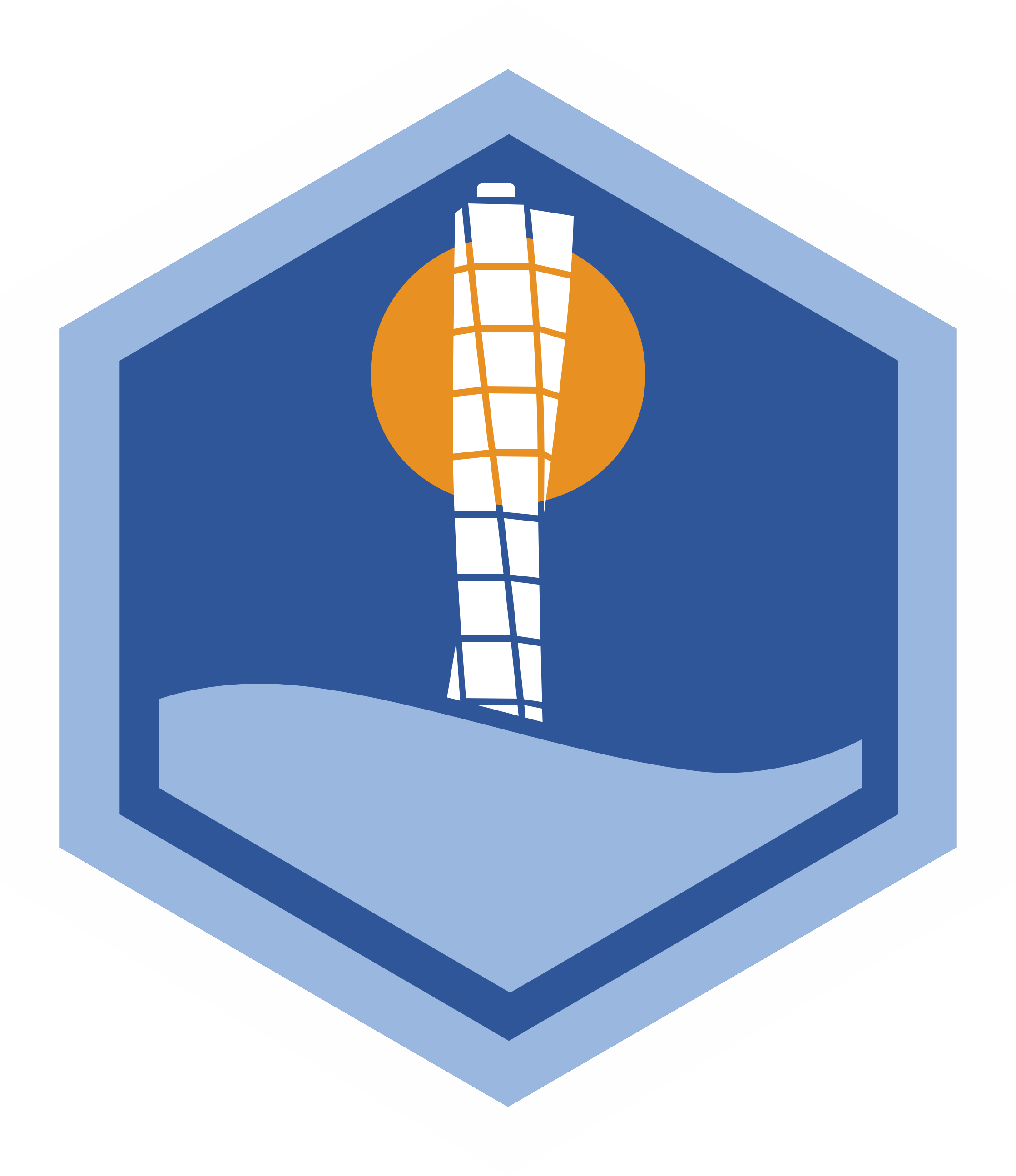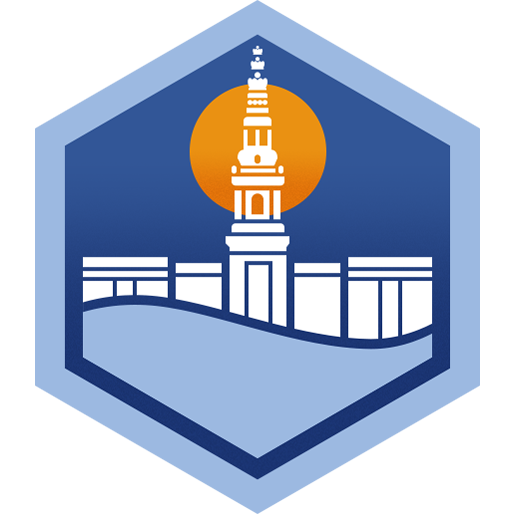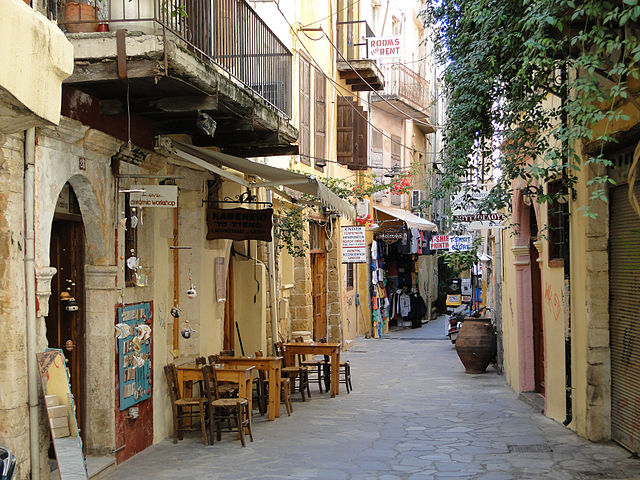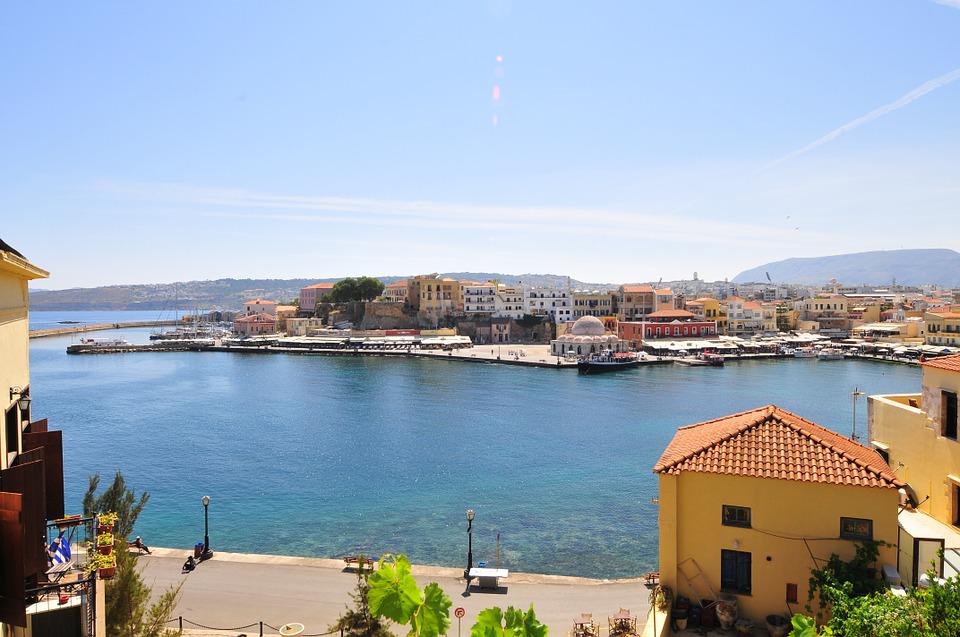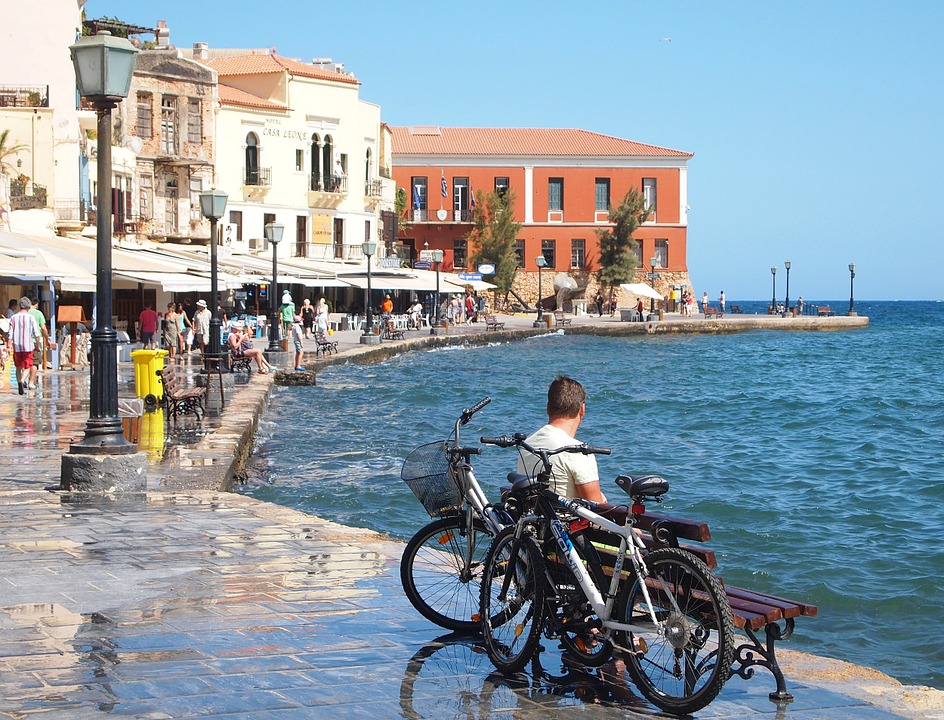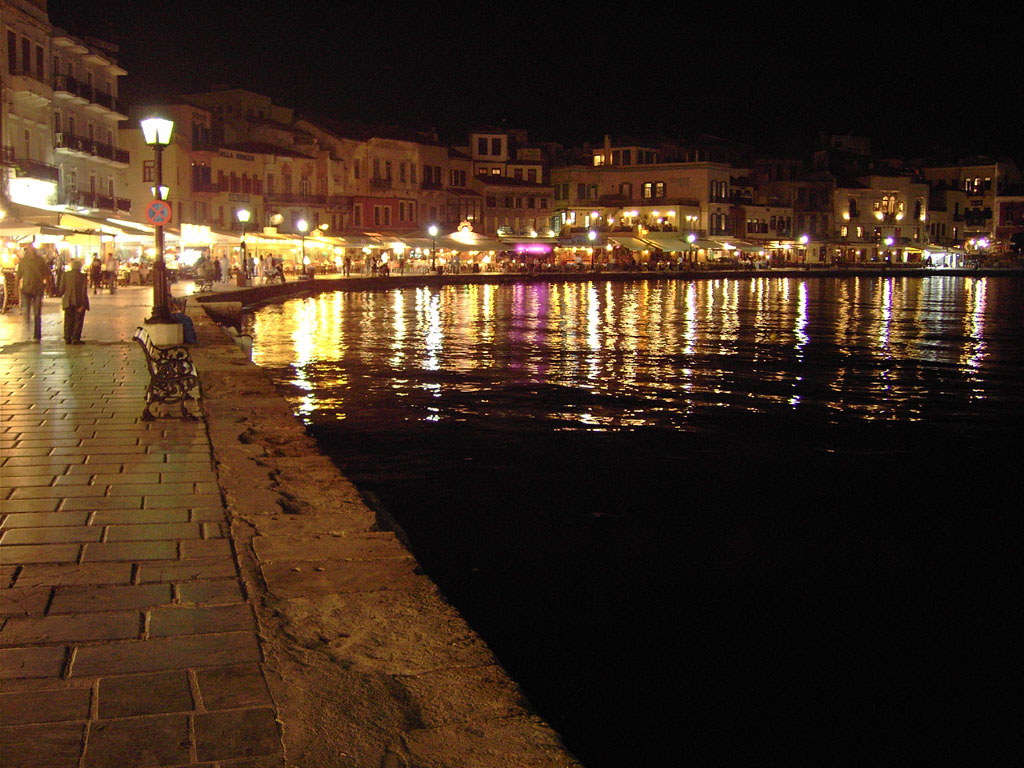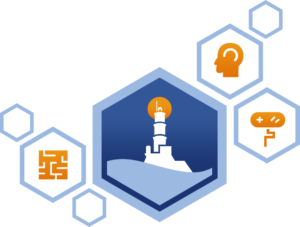
Summer School Description
For the fourth International Summer School on Artificial Intelligence and Games, we are returning to Chania, Greece! Join us between August 29 and September 2, 2022!
The summer school is dedicated to the uses of artificial intelligence (AI) techniques in and for games. After introductory lectures that explain the background and key techniques in AI and games, the school will introduce participants the uses of AI for playing games, for generating content for games, and for modeling players.
This school is suitable for industrial game developers, designers, programmers and practitioners, but also for graduate students in games, artificial intelligence, design, human-computer interaction, and computational intelligence.
The main lecturers are Georgios N. Yannakakis and Julian Togelius, co-authors of the AI and Games textbook (http://www.gameaibook.org), the first comprehensive textbook on the use of AI in games. During the first phase of the school theoretical lectures will be complemented by guest lectures on special topics in game AI and by hands-on workshops given by world-leading practitioners. For the second phase of the school, we plan a game AI jam on the taught material.
Previous Summer Schools
The 4th International Summer School on AI and Games is organised by modl.ai.
Modl.ai creates unique AI solutions that empower game developers around the world by automating game development and enhancing player engagement by embedding AI technology in key development stages.
Lecturers
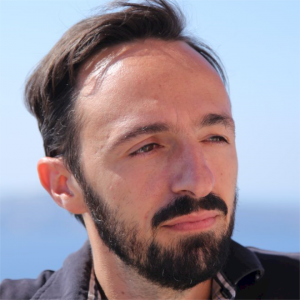
Georgios N. Yannakakis
Georgios N. Yannakakis (yannakakis.net) is a Co-Founder and Research Director (Malta) of modl.ai, and Professor and Director of the Institute of Digital Games, University of Malta. He is a leading expert of the game artificial intelligence research field with core theoretical contributions in machine learning, evolutionary computation, affective computing and player modelling, computational creativity and procedural content generation. He has published more than 300 papers and his work has been cited broadly. He has attracted funding from several EU and national research agencies and received multiple awards for published work in top-tier journals and conferences. His work has been featured in New Scientist, Science Magazine, The Guardian, Le Monde and other venues. He is regularly invited to give keynote talks in the most recognised conferences in his areas of research activity and has organised a few of the most respected conferences in the areas of game AI and game research. He is currently the Editor in Chief of the IEEE Transactions in Games. He has been an Associate Editor of the IEEE Transactions on Computational Intelligence and AI in Games and the IEEE Transactions on Affective Computing journals. He is the co-author of the Artificial Intelligence and Games Textbook.

Julian Togelius
Julian Togelius (julian.togelius.com) is a Co-Founder and Research Director (New York) of modl.ai, and an Associate Professor at the Department of Computer Science and Engineering at the New York University Tandon School of Engineering. Previously, he was an Associate Professor at the Center for Computer Games Research, IT University of Copenhagen and among the founders of the procedural content generation research field. Togelius has introduced core procedural generation paradigms and frameworks for game content such as the Experience-driven Procedural Content Generation (EDPCG) framework and the Search-based Procedural Content Generation (SBPCG) paradigm which define two of the leading research trends within procedural content generation. EDPCG couples player experience modelling and procedural content generation so that game content is generated in a personalised manner for affecting the experience of the player and SBPCG offers a taxonomy for the generation of game content through search. He co-edited the first book on Procedural Content Generation in Games. Togelius' research has appeared in respected international media such as New Scientist, and Le Monde. He is the co-author of the Artificial Intelligence and Games textbook.
Introduction to the Summer School and Game AI
This session is dedicated to introducing the format of the summer school and explaining how artificial intelligence techniques can be used in and for games. After an introductory part that will focus on the history, background and key techniques used in AI and games, we will outline how to best use AI algorithms to play games, to generate content for games and to model players.
AI that Plays
When most people think of AI in games they think of an AI playing the game, or controlling the non-player characters you meet in the game. This might be because of the association between AI and the idea of autonomous action, or the association between game characters and robots. While playing games is far from the only interesting application for AI in games, it is a very important one and the one with the longest history. Many methods for content generation and player modeling are also dependent on methods for playing games, and therefore it makes sense to discuss playing games before content generation and player modeling. In this talk Julian will take us through the dominant AI approaches used for playing and testing games.
AI that Designs
Procedural content generation (PCG) is an area of game AI that has seen an explosive growth of interest. While games that incorporate some procedurally generated content have existed since the early 1980s research interest in academia has really picked up within the second half of the last decade. Simply put, PCG refers to methods for generating game content either autonomously or with only limited human input. This talk is devoted to methods for generating game content, as well as paradigms for how to incorporate them into games. The focus is put on constructive and search-based PCG methods.
AI that Experiences
How can we possibly detect behavioral patters, experiences elicited and decision made by players in a reliable manner? In this talk we will be taking you through the full cycle of the game affective loop with a focus on game experience elicitation, experience annotation and machine learning for the creation of models of players. The player modeling technology we will introduce is directly applicable for modeling both behavioral (player analytics) and experience aspects of play.
Frontiers in Player Modeling
Why bother about emotions and their computation? Why is emotion such a critical element of every aspect of AI and Games research nowadays? How can emotion help us test games, represent the games we play, design creative AI algorithms, offer reliable agency to AI, and ultimately understand player experience? In this talk, Georgios will attempt to address these questions through a series of milestone research studies that led to a number of key lessons learned over the years. Georgios will conclude the talk by suggesting directions through which emotion can reframe the ways we build AI algorithms and develop games.
Frontiers in Procedural Content Generation
Once we have obtained reliable models of players the next obvious question is how we can possibly design appropriate games for them. Games that have both the necessary aesthetic elements and functional properties for their designers and players. Methods derived from procedural content generation can be coupled with player models to yield entirely novel and personalised content for each player or designer. With such technology we can debug the experience attributed to each content type we design in an autonomous or a designer-assisted way.
Guest Lecturers

Dominique Busso
Founder & CEO, askblu.ai
Entrepreneur (founder of OpeMind Intl in 1991, sold to Mindscape in 2006) and software Development wizard, Dominique has been for 3 years the CTO of Mindscape France. Dominique founded Happy Blue Fish in July 2009 to embrace the mobile gaming revolution. In 2017, he launched the DeepTech SaaS project askblu.ai, so every game studio and publisher can benefit from AI and Data Science with no upfront cost.
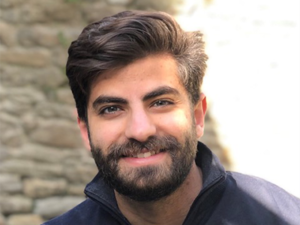
Bassel Masri
Data Scientist, askblu.ai
Real-Time Data Science for Mobile Games
What is Real-Time Data Science for mobile games? How does it work? What are the key challenges? The talk is focusing on Real-Time Churn Prediction.

Kate Compton
Founder, Kate Compton consulting
Dr Kate Compton (@galaxykate) is a long-time generative artist, inventor, programmer, and Assistant Professor of Instruction at Northwestern University. She wrote the first paper on procedural platform-game levels, generated the planets for the video game Spore, created the language Tracery which runs over 10000 community-made bots on Twitter, and invented an early phone-based AR system. Her mission is to design artificial intelligence to augment human creativity, and to create tools that bring AI into the hands of poets, artists, kids, and weirdos.
All Together Now: Technology Design for Social Creativity
The pandemic has been a year of separation and isolation, but it's also a time when we've never been more technologically connected. Let's explore the ways that we are using new tools (and old ones in new ways) to come together in creative play. Discover a world of AI gameshow hosts, VR Shakespeare, Zoom roleplaying games, Animal Crossing birthdays, and Google Spreadsheet parties, and find out why they all work, and what roles AI can play in being a better host for our parties.
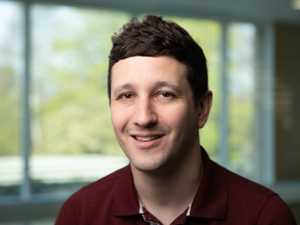
Sam Devlin
Principal Researcher, Microsoft Research
Sam is a Principal Researcher in the Deep Reinforcement Learning for Games group at Microsoft Research Cambridge. He received his PhD on multi-agent reinforcement learning in 2013 from the University of York; was a postdoc from 2013 to 2015, working on game analytics; and then was on the faculty from 2016 until joining Microsoft in 2018. Devlin has published more than 50 papers on reinforcement learning and game AI in leading academic venues and presents regularly at games industry events including Develop and the Game Developers Conference (GDC).
Designing Games for AI to Play
Deep Reinforcement Learning has had great success in defeating world champions in many games and routinely learns to play Atari games, but the skill of applying AI algorithms to new games is rarely discussed leading many to conclude it doesn’t work yet. In this talk I will share practical advice from over 15 years of making AI play games and games for AI to play. My goal in this session is to help all attendees reduce their favourite complex, multiplayer games to the simplest, sufficient Markov decision process.

Linus Gisslén
ML Technical Director, SEED - Electronic Arts
Linus Gisslén is a researcher and team lead at SEED of a team looking into how to apply state-of-the-art machine learning techniques to games and game testing. His research topics involve the application of Reinforcement Learning but also Supervised Learning in games, Procedural Content Generation, and game playtesting. Before joining SEED and EA he was a researcher in various groups and has done a postdoc in ML. SEED is an advanced R&D group at Electronic Arts whose purpose is to push the boundaries of game experiences and to drive innovation in how games are created and played in the future.
ML in Game Production
A short description of the talk: Machine Learning has the very exciting potential to become integrated into games, and also tools in game production. At SEED we do research in this area to explore what is possible, and to make sure that EA is one of the early players in this field. The talk with give insight into the research that is required to do so, and some examples of ML use-cases will be shown. The goal with this talk is to spark ideas and to give the audience a sense of what is possible, but also the limitations, of machine learning and game production.
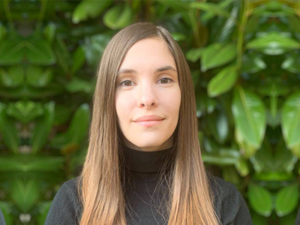
Roberta Raileanu
Research Scientist, FAIR - Meta AI
Dungeons and Data: Learning Behaviors from Large-Scale Datasets
Recent breakthroughs in the development of agents to solve challenging games such as Go, StarCraft, or DOTA, have relied on both simulated environments and large-scale datasets. However, progress on this research has been hindered by the scarcity of open-sourced datasets and the prohibitive computational cost to work with them. In the first part of my talk, I will introduce the NetHack Learning Dataset (NLD), a large and highly-scalable dataset of trajectories from the popular game of NetHack, which is both extremely challenging for current methods and very fast to run. NLD consists of three parts: 10 billion state transitions from 1.5 million human trajectories collected on the NAO public NetHack server from 2009 to 2020; 3 billion state-action-score transitions from 100,000 trajectories collected from the symbolic bot winner of the NetHack Challenge 2021; and, accompanying code for users to record, load and stream any collection of such trajectories in a highly compressed form. In the second part of my talk, I will discuss a few approaches for learning general behaviors from large-scale datasets of game play. NLD enables research in multiple areas including imitation learning, offline RL, learning from demonstrations, as well as combining offline and online learning. It can also lead to more effective, diverse, and customizable NetHack agents (e.g. that follow a particular style of play). Finally, I will outline some challenges and directions for future work.
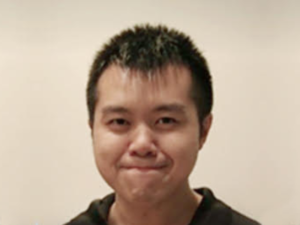
David Ha
Research Scientist, Google
Collective Intelligence for Deep Learning: A Survey of Recent Developments
...
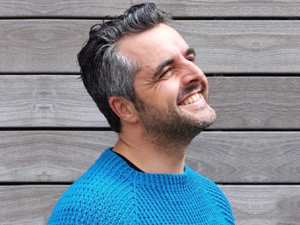
David Renaudie
Lead Data Scientist, Massive Entertainment
In the gaming industry, he is leading a data science team that supports game productions with advanced data processing solutions, pursuing the goal of enhancing player experience. He constantly aims at pushing boundaries of what data science brings to the complex art of crafting AAA video games, and published in recognized conferences such as IEEE Conference on Games or IEEE Big Data Conference. He is presently working on several projects related to main franchises of the studio, namely Tom Clancy's The Division 2, Avatar, and Star Wars.
Player Builds Segmentation from In-Game Telemetry: The BaT Clustering Approach
Most video games with high end-game replayability and long life span receive regularly new content and updates to keep their player base engaged. It can be for example through new seasonal challenges, ingame items, skins, missions or game modes. For games having RPG mechanics that open wide possibilities in terms of character customization (such as equipped items or unlocked skills), players usually create and refine "builds" that match their preferred playstyles. Understanding the builds effectively used by players in-game, before and after a title update release, is key for designers and other stakeholders to assess the reception of the newly introduced game elements.
We found that applying traditional unsupervised machine learning approaches often fail at extracting meaningful and actionable results. This is notably due to the combinatorial explosion inherent to the nature of the player data in this case, but also to the nature of this data. We experimented and developed a novel, original method - called BaT Clustering - to automatically segment big datasets of in-game player data into coherent "player builds" from a game perspective. The method leverages unsupervised machine learning together with text-based encoding based on game knowledge, and provides results in a fast, efficient, and scalable way. Most importantly, the produced output is easily interpretable by a non-data-specialist audience, that can effectively leverage its insights in the game production cycle.
We show examples of results found when applying this method to real player data from the game Tom Clancy's The Division 2.
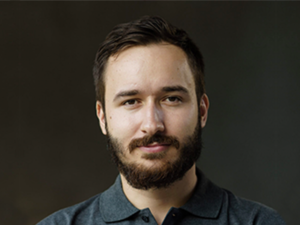
Florian Fuchs
AI Engineer, Sony AI
Outracing champion Gran Turismo drivers with deep reinforcement learning
Gran Turismo Sophy is a revolutionary superhuman racing agent designed to compete against top Gran Turismo® Sport drivers and elevate their gaming experience.
GT Sophy was trained using novel deep reinforcement learning techniques, including state-of-the-art learning algorithms and training scenarios developed by Sony AI, using Gran Turismo Sport, a real driving simulator, and by leveraging Sony Interactive Entertainment's cloud gaming infrastructure for massive scale training.

Mat Rowlands
Senior Solution Architect, Amazon Web Services
Detecting toxicity in near real-time across multiple channels in a cost efficient way
Toxic speech and chat can destroy you multi-player game, but streaming solutions are too expensive to implement. Learn how to compose AWS AI / ML services and use service limits to inform your design and achieve a viable end to end solution.

Frederic Nowak
Solutions Architect, Amazon Web Services
Building a players churn prediction Model from a synthetic dataset with No-Code/Low-Code AWS Services
Churn Prediction is one of the most common use case in the gaming industry for Machine Learning. In this session you will learn how to build a machine learning model to predict players churn with no machine learning skills and no line of code and get immediate value from your game events. At the end of the session we are going to dive deeper on the synthetic dataset, why we have built it and how you will be able to use it in your own use cases.
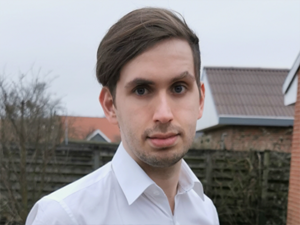
Thomas Terkildsen
Project Lead, APEX of Fear; Researcher, Aarhus University
Physiological Sensing for Affective Gaming
As wearable sensors become more accessible, physiological sensing is increasingly being applied to games as it affords novel methods for understanding and enhancing player experience. However, the use of physiological sensors is still by no means ‘plug-n-play’. Through this talk, I aim to lower the current barriers-to-entry by offering practical recommendations for how to get started and by sharing insights I have learned from working with physiological sensing for over 10 years.
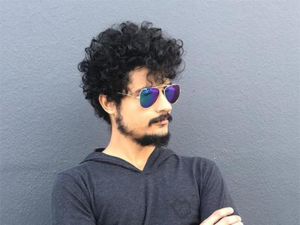
Ricardo Sisnett
Lead Engineer, modl.ai
Ricardo holds a Bachelor’s degree in Computer Science and Technologies from Tecnológico de Monterrey, Mexico, and an MSc in Computer Science from the University of Southern California, USA.
Architecting Games with AI in Mind
Machine Learning and other cutting-edge AI techniques are finally making their way to mainstream Game Development, but are we ready for them? Using the lessons learned from integrating with our customers we present a set of best practices we have come to develop to make it easier to welcome our new robot overlords.
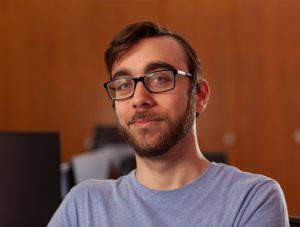
Sam Snodgrass
AI Researcher, modl.ai
Reducing User Burden in PCGML Systems
...
Game AI Jam Facilitator and Guest Lecturer

Antonios Liapis
Senior Lecturer at the Institute of Digital Games, University of Malta.
Antonios Liapis is a Senior Lecturer at the Institute of Digital Games, University of Malta, where he bridges the gap between game technology and game design in courses focusing on human-computer creativity, digital prototyping and game development. His research focuses on Artificial Intelligence as an autonomous creator or as a facilitator of human creativity. His work includes computationally intelligent tools for game design, as well as computational creators that blend semantics, visuals, sound, plot and level structure to create horror games, adventure games and more. He has also co-organized numerous game jams, and has participated in even more!
Game AI Jam
During the last two afternoons of the Summer School, we will participate in a game AI jam, facilitated by Antonios Liapis. During the jam students will work in teams, focusing on creating a game environment for applying or testing the algorithms discussed during the remainder of the school. Alternatively, teams can also create a tool rather than a full game, such as a generator for game content (levels, graphics, audio...). The two-day jam will conclude with a "demo hour" where all students and lecturers can see and play with the different projects, and talk to each other about best practices and lessons learned.
Webmaster and Publicity Chair
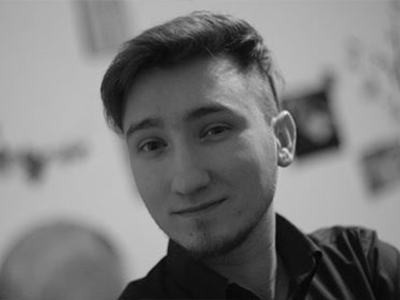
David Melhart
AI Researcher at modl.ai
David Melhart is an AI Researcher for Modl.ai, specializing in User Research and Player Modelling. He was the Communication Chair of FDG 2020 and has been a recurring organizer and Publicity Chair of the Summer School series on Artificial Intelligence and Games (2018-2022). With more than a dozen publications, an industry collaboration with Ubisoft, and multiple conference appearances behind his back, he is an experienced presenter. David earned his Ph.D. in AI and Games Research at the Institute of Digital Games, University of Malta in 2021. He received a master's degree in Cognition and Communication from the University of Copenhagen in 2016. His academic research focuses on Machine Learning and Affective Computing.
Local Organizing Team
- Emmanouil Xylakis - University of Malta
- Anna Pukropski - Modl.ai
- Kosmas Pinitas - University of Malta
- Konstantinos Sfikas - University of Malta
- Chintan Trivedi - University of Malta
- Matthew Barthet - University of Malta
- M Charity - New York University
Summer School Program
Timeslots in the program correspond to the Eastern European Summer Time (GMT+3) timezone.
| Monday - Aug 29 | |
| 08:00-09:00 | In-Person Registration |
| 09:00-09:30 | Welcome Session and Game Jam Facilitator: Antonios Liapis Introduction Georgios N. Yannakakis & Julian Togelius, Antonios Liapis |
| 09:30-10:30 | AI and Games: Introduction Georgios N. Yannakakis & Julian Togelius |
| 10:30-11:00 | Coffee Break |
| 11:00-12:00 | AI that Plays Julian Togelius |
| 12:00-13:00 | Designing Games for AI to Play Sam Devlin  |
| 13:00-14:00 | Lunch Break |
| 14:00-15:00 | ML in Game Production Linus Gisslén  |
| 15:00-15:30 | Coffee Break |
| 15:30-16:30 | Outracing champion Gran Turismo drivers with deep reinforcement learning Florian Fuchs  |
| 20:00-22:00 | Reception (Pool Area) |
| Tuesday - Aug 30 | |
| 09:30-10:30 | AI that Designs Julian Togelius |
| 10:30-11:00 | Coffee Break |
| 11:00-12:00 | All Together Now: Technology Design for Social Creativity Kate Compton |
| 12:00-13:00 | Reducing User Burden in PCGML Systems Sam Snodgrass  |
| 13:00-14:00 | Lunch Break |
| 14:00-15:00 | Collective Intelligence for Deep Learning: A Survey of Recent Developments David Ha  |
| 15:00-15:30 | Coffee Break |
| 15:30-16:30 | Frontiers in PCG Julian Togelius & Georgios Yannakakis |
| Wednesday - Aug 31 | |
| 09:30-10:30 | AI that Experiences Georgios Yannakakis |
| 10:30-11:00 | Coffee Break |
| 11:00-12:00 | Real-Time Data Science for Mobile Games Dominique Busso & Bassel Masri  |
| 12:00-13:00 | Player Builds Segmentation from In-Game Telemetry: The BaT Clustering Approach David Renaudie  |
| 13:00-14:00 | Lunch Break |
| 14:00-15:00 | Detecting toxicity in near real-time across multiple channels in a cost efficient way Mat Rowlands  |
| 15:00-15:30 | Coffee Break |
| 15:30-16:30 | Frontiers in Player Modeling Georgios Yannakakis |
| Thursday - Sept 1 | |
| 09:30-10:30 | Dungeons and Data: Learning Behaviors from Large-Scale Datasets Roberta Raileanu  |
| 10:30-11:00 | Coffee Break |
| 11:00-12:00 | Physiological Sensing for Affective Gaming Thomas Terkildsen 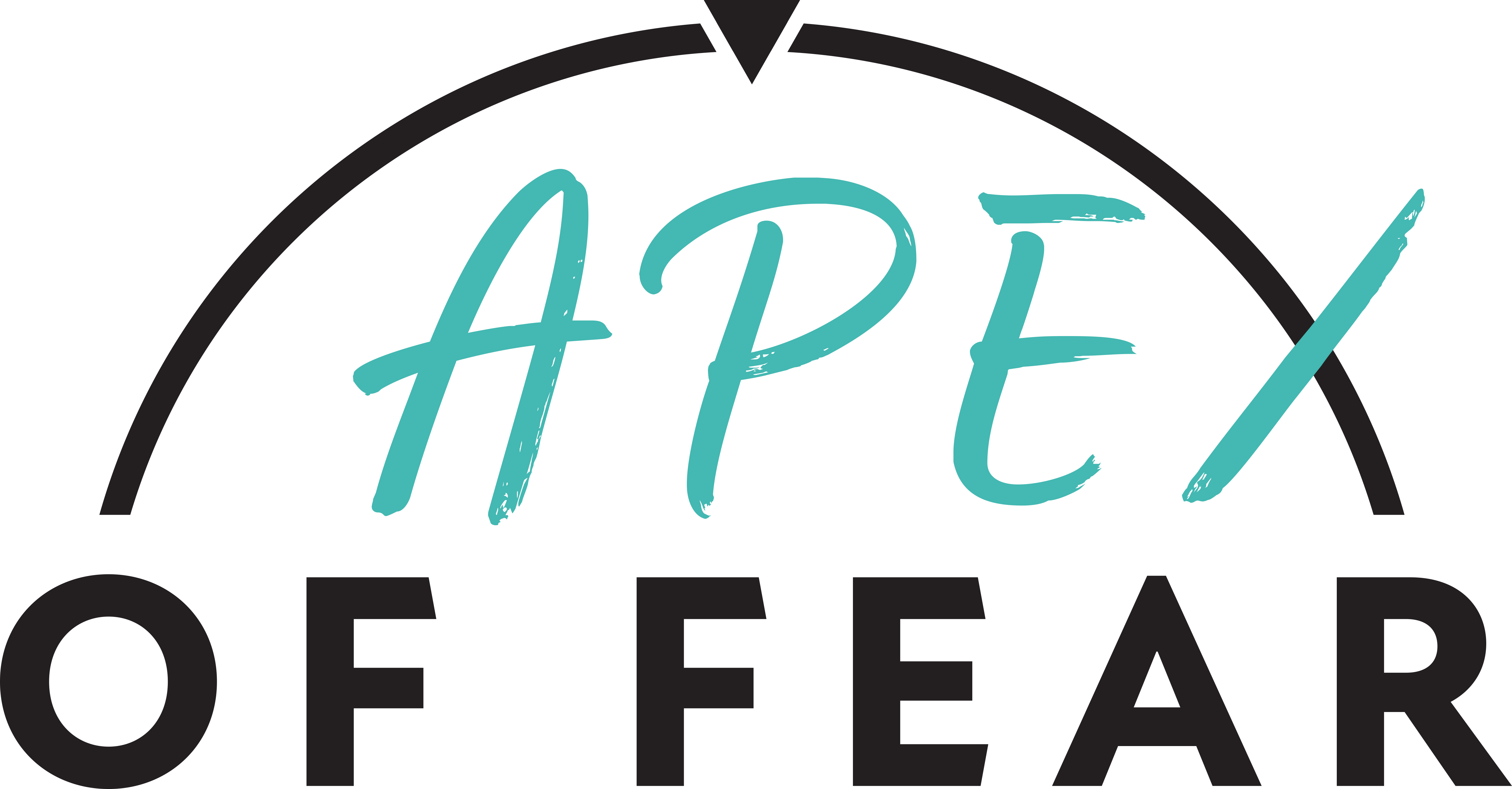 |
| 12:00-13:00 | Architecting Games with AI in Mind Ricardo Sisnett  |
| 13:00-14:00 | Lunch Break |
| 14:00-15:00 | Building a players churn prediction Model from a synthetic dataset with No-Code/Low-Code AWS Services Frederic Nowak  |
| 15:00-15:30 | Coffee Break |
| 15:30-16:30 | Game Jam Facilitator: Antonios Liapis |
| Friday - Sept 2 | |
| 09:30-10:30 | Game Jam Facilitator: Antonios Liapis |
| 10:30-11:00 | Coffee Break |
| 11:00-12:00 | Game Jam Facilitator: Antonios Liapis |
| 12:00-13:00 | Game Jam Facilitator: Antonios Liapis |
| 13:00-14:00 | Lunch Break |
| 14:00-15:00 | Game Jam Facilitator: Antonios Liapis |
| 15:00-15:30 | Coffee Break |
| 14:00-15:00 | Game Jam Facilitator: Antonios Liapis |
| 16:30-17:30 | Game Jam Arcade |
| 17:30-18:30 | Videos and Voting |
| 18:30-19:00 | Game Jam Awards and Closing Remarks Georgios N. Yannakakis & Julian Togelius, Antonios Liapis |
| 19:30-21:30 | Farewell Gathering (Beach Area) Sponsored by Amazon Web Services  |
To get a better idea about our summer school program in general, be sure to check out last years' schedule!
Read About the 2018 School Program
Expectations on Participants
While the Summer School on Artificial Intelligence and Games is open to participants at varying levels of expertise and seniority, you will get more out of your participation in the summer school if you come equipped with some conceptual and technical knowledge. In particular, the following topics are worth touching up on, or reading up on if you do not already know them:
Tree search algorithms: informed and uninformed search (depth-first, breadth-first, A*); game tree search (Minimax); Monte Carlo Tree Search.
Machine learning: basic concepts (supervised, unsupervised, reinforcement learning); neural networks; decision trees.
If you are unsure about your level of understanding of artificial intelligence and machine learning, try reading Chapter 2 ("AI Methods") of the Artificial Intelligence and Games book, which covers these topics. You will find pointers there to material that can help you refresh your knowledge of particular topics.
Programming: it greatly helps to be able to program in some language. Which particular language is of lesser importance. Wherever possible, examples will be given in pseudocode so as to facilitate understanding across language barriers. However, some examples may be given in e.g. Python, Java or C#. The various tutorials and hands-on workshops are expected to use different frameworks and languages. We will add the list of specific language requirements per tutorial the closer we approach the school.
Game engines: knowledge of a game engine such as Unity will be useful during the concluding game AI jam.
Bringing your own laptop is similarly beneficial for participating in the practical sessions. We will not be able to provide a laptop for you during the summer school.
Apart from this, we only need you to come equipped with an open mind and a willingness to learn.
We want the First Summer School on Artificial Intelligence and Games to be joyful as well as useful occasion for all of us. Remember that participants come from many different countries, backgrounds, and experience, and treat everyone with respect and kindness. Please talk to the organisers if we can do something to improve your experience.
Software Guidelines for Participants
The various hands-on tutorials require different software installed on your laptops. To make the most of the tutorials please have the following software installed and prepared.
More details will be announced before the summer school.
Scholarships
CLAIRE Scholarship
Our partners at CLAIRE offer 5 full scholarship seats for the members of their Rising Researchers Network! The Rising Researchers Network is open to any PhD students, Postdocs and Master's students in fields related to AI in Europe. It aims to connect early-career AI researchers to foster collaboration and research mobility within Europe by conducting networking events, arranging research visits and providing a communication platform for all its members.
The scholarship selection is based on an outstanding CV and a short, one-paragraph letter of motivation emphasizing the role of this summer school in the development of your current or future game AI projects or research. Selected candidates will have their registration fee waived.
The applications should be submitted to r2network@claire-ai.org with the subject line: "Summer School on AI and Games Scholarship 2022".
The deadline for applications was April 1. Submissions are now closed.
Sony AI Scholarship
Our partners at Sony AI offer 8 full scholarship seats for students at the International Summer School on AI and Games!
We offer this opportunity to students based on an outstanding CV and a short, one-paragraph letter of motivation emphasizing the role of this summer school in the development of your current or future game AI projects or research. Selected candidates will have their registration fee waived.
The applications should be submitted to school@gameaibook.org with the subject line: "Scholarship 2022".
The deadline for applications was May 31. Submissions are now closed.
AWS Game Tech Scholarship
Our partners at AWS Game Tech offer 20 virtual scholarship seats for students at the International Summer School on AI and Games!
We offer this opportunity to students based on an outstanding CV and a short, one-paragraph letter of motivation emphasizing the role of this summer school in the development of your current or future game AI projects or research. Selected candidates will have their registration fee for virtual attendance waived.
The applications should be submitted to school@gameaibook.org with the subject line: "Scholarship 2022".
The deadline for applications was August 5. Submissions are now closed.
Modl.ai Scholarship
Our main organizer modl.ai offers 10 virtual scholarship seats for students at the International Summer School on AI and Games!
We offer this opportunity to students based on an outstanding CV and a short, one-paragraph letter of motivation emphasizing the role of this summer school in the development of your current or future game AI projects or research. Selected candidates will have their registration fee for virtual attendance waived.
The applications should be submitted to school@gameaibook.org with the subject line: "Scholarship 2022".
The deadline for applications was August 5. Submissions are now closed.
Students from developing countries will be prioritised (based on the OECD/DAC List of ODA Recipients).
Venue
The Summer School venue will be held at the Minoa Palace Resort Hotel.
Minoa Palace Resort Hotel in Chania was built in 2002 and has been established as one of the leading 5-star resorts in Chania, Crete. It stands out due its aura of tranquility, harmoniously blended in with the ocean breeze and the lush green surroundings. A preferable choice for artistic rendez-vous, the resort is an equally great host for all sorts of corporate events, conferences, meetings, parties and wedding ceremonies.
The Minoa Palace Resort Hotel reserves rooms at the venue for the Summer School participants. If you wish to stay at the venue take a look at the booking site for more information.
You will be able to proceed with their booking until 01/06/2022. After this date, the room block will be removed and availability will be upon request. In case you have special requests, please send an email to the reservation department of Minoa Palace Resort Hotel at reservation@minoapalace.gr
